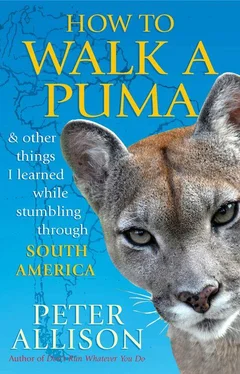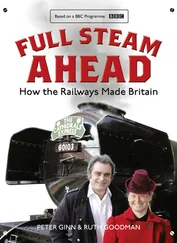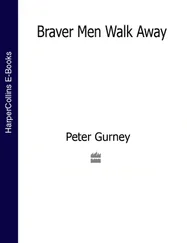‘Ah! Huevo! Que bueno! ’ (‘An egg! How good!’) the hostel owner said in delight when I gave it to her, as if she’d won a prize, before walking out with it. I had to assume that the bed’s previous occupant was a chicken, and the sheets hadn’t been changed since then, but by then I was too tired to care.
Soon after, Lisa returned from the bathroom, looking shell-shocked. ‘My God. I don’t think that room has ever been cleaned. And the wall is so thin between it and this room I could almost see you.’ I decided to use a tree outside instead, chasing a sleeping chicken from underneath in doing so. ‘One of your kids was in my room,’ I said to it as it scuttled off.
I fell deeply asleep, but was woken after what seemed like a very brief time by Cesar’s bass voice shouting ‘ Vamos! ’ before the rooster outside could crow.
After an extraordinary breakfast of steak, eggs, rice, lettuce, tomato and an instant coffee so dastardly that even my caffeine-craving system rejected it, we were on the road again.
‘Only three hours,’ said Cesar, smiling.
‘Sure,’ I thought.
It took another eight hours from breakfast to reach our destination, meaning that all up we’d spent over twenty-two hours stewing in our own juices in the four-wheel drive, not to mention experiencing the terror of impending death. So it was a huge relief to be at the water for our relaxing float downriver. Little were we to know that this was where the real adventure would begin.
Without a Paddle

Despite our delayed arrival, our raft wasn’t yet ready for launch from a river bank strewn with litter from a nearby village and landmined with dog turds. While the setting was less than idyllic, the river looked inviting. First though we had to meet our crew.
A hard-working man with a gold-toothed smile was lashing tyre tubes to a rectangular frame made of bamboo.
‘Hmm, rubber, twine and bamboo, all noted shipbuilding materials,’ I mused, watching him, though I quite liked the rough look of our vessel as it came together. How could this not be fun?
The gold-toothed man introduced himself as Abel, and introduced us to his wife, Reina, who would be our cook.
‘ Mucho gusto , Reina,’ we all replied, Thema rolling the ‘r’ at the front of her name as if he found it delicious.
One further crew member sat watching us all toad-like through heavy-lidded eyes. Though it was evident he put in a lot of effort at the gym, he clearly didn’t replicate it in the boat-building endeavour.
‘Our son,’ Abel explained, a hint of resignation in his tone. He offered no name, and a few of us quietly agreed to think of the lad as Captain Useless.
Thanks to Abel’s heroic solo labour, in no time we were boarding, our luggage wrapped in two-ply plastic bags in case of splashes or, worse, a flip. The luggage then doubled as our seats and I quickly discovered that a bird book has nasty edges to sit on, and resolved to repack it more sensibly the next day.
We set off into a side channel as the sun sank, our goal a much more impressive-looking river only a few hundred metres away. The tyre-tube raft bucked a little where the waters met but Abel’s efforts with a paddle soon had us in calmer waters, and before long a feeling of absolute serenity overtook us. Jesus was no longer with us, and that was surely a blessing. Everyone was silent, enjoying the peace, except Thema, who started singing a few notes of some song, then muttered and, tranquillity trashed, went silent again.
‘We will camp in an hour,’ Cesar said after two minutes/hours and we all burst out laughing at the idea that he had any idea when that was. Though he probably didn’t know what we were laughing about, he joined in, and for the next two hours we happily let the current take us into the night, finally pulling in at an unnamed beach in a remote part of the world.
‘This feels like South America, doesn’t it?’ I said to Lisa as we set up our camp for the night.
‘Yes, it does,’ she said, briefly letting go of a tent pole to squeeze my hand. ‘But I’ll admit I can’t see anything here so we might be in London.’
•
Dawn revealed that we had set up camp on a flat mix of sand and river rocks (actually some of the rocks had made themselves known to my spine during the night). The river here was the colour and opacity of milky coffee.
On the opposite bank, some fifty metres or so away, men were already dredging and panning. Cesar explained that they were miners looking for gold. The miners set up a pump which emitted a dull thrumming, its outlet pipe spewing muddy waste straight back into the river, which explained the murky colour.
As we set off on the raft again I felt content. Every hope I had had for this trip was finally being fulfilled. The river was serene, even if the jungle on either side was disturbed by mining and the water often cloudy. The brochure hadn’t mentioned that the herons, kingfishers, caimans and otters I’d hoped to see would be absent—there was no way they could hunt in this murk—yet the peacefulness made it impossible to be too disappointed.
Once more our little group from La Paz, never verbose, stayed quiet and simply enjoyed the view of the horizon-stretching river and its banks, the gentle lap of water against the raft (this led to the occasional buttock soaking, but no one complained) and the soft splish of Abel’s paddle as he steered us down the centre of the river.
‘Cesar,’ I asked, ‘what is the name of this river?’
‘It is the Rio Kaka,’ he replied.
It took a few moments for it to hit me. ‘Shit Creek? That’s fantastic!’ I said, laughing, though nobody else seemed to share my delight in the waterway’s name.
The day passed with little incident and few breaks, Cesar keen to make up the time lost by our late arrival by encouraging Abel and his loafing son to paddle while the rest of us sat, chatted, and tanned on the raft.
We set up camp again in the dark, the fire lit first so Reina could make us what turned out to be a surprisingly tasty meal given the deceptively plain ingredients of bread, tinned tuna and a mystery sauce, as well as plaintain, the savoury banana that is a staple in many South American countries.
The next morning we were woken by what had become the familiar Cesar alarm clock. ‘Abel!’ he would shout in his bass voice. ‘ Vamos! ’
By day three we saw fewer and fewer signs of people. The banks were no longer gouged by mining and the river ran cleaner, with increasing numbers of streams joining it from the surrounding low hills. Macaws flew overhead and branches shook with the weight of fleeing monkeys, their fear of humans a sign that they were most likely hunted in this area. Among the dense greenery was the odd orchid, a splash of yellow or red tended by bees the size of birds, and birds the size of bees.
On the fourth morning we were woken by something far louder than Cesar’s bass rumble. A harsh, sustained bellow—changing in pitch but never waning—began before sunrise, rousing all but the dead from sleep.
‘What the hell is that?’ the Minke asked me.
‘Howler monkeys. The world’s loudest land animal,’ I replied, grinning in the dark. I’d glimpsed them before in the Pantanal, but hadn’t heard them calling properly until now, and only knew what the sound was because there was simply nothing else it could be.
The aptly named howler monkeys kept their chorus going all through our breakfast, then went silent as they headed off to find their own food.
Читать дальше













